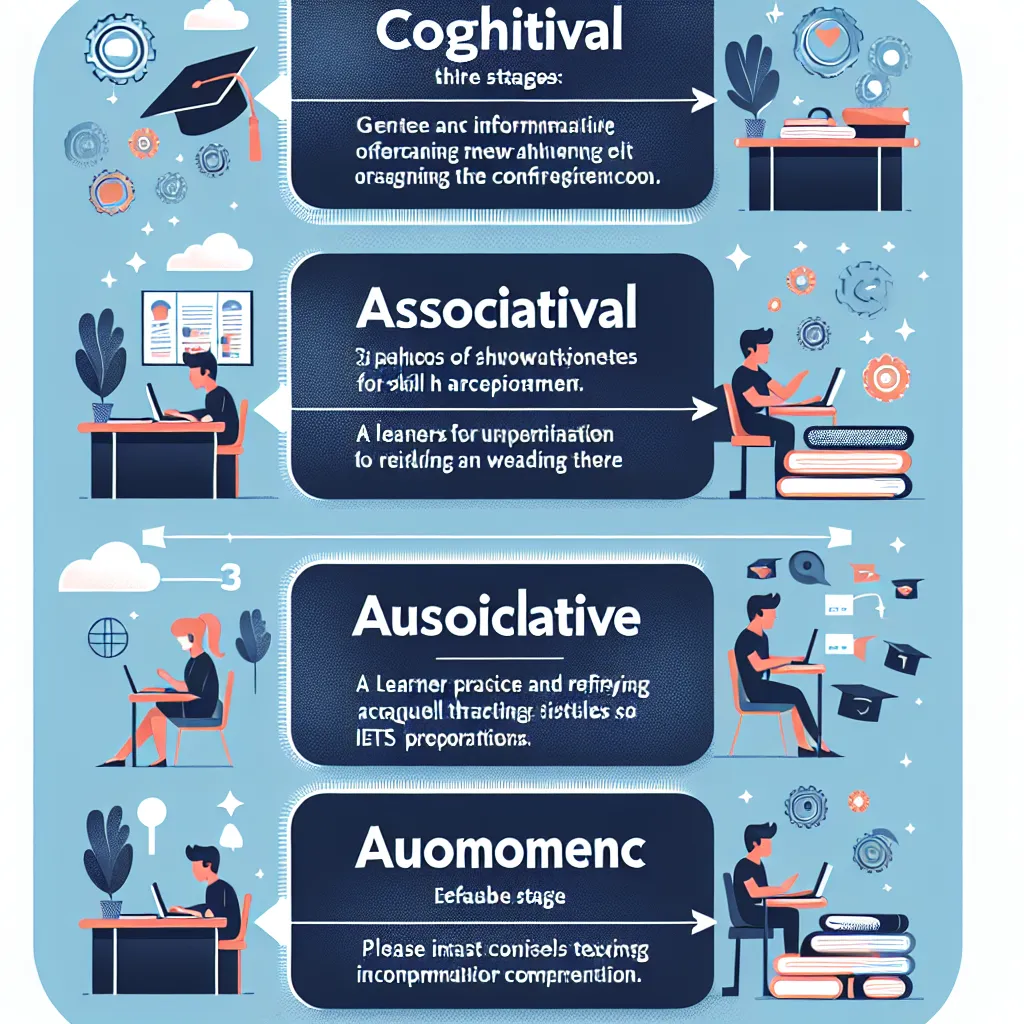Skill acquisition is a crucial process in learning and mastering new abilities, particularly when preparing for the IELTS exam. Let’s explore this concept in depth and discover how it can be applied to enhance your IELTS performance.
Understanding Skill Acquisition
Skill acquisition refers to the process of learning and developing new abilities through practice and experience. In the context of IELTS preparation, it involves mastering various language skills essential for success in the exam.
Definition and Pronunciation
- Skill acquisition /skɪl ækwɪˈzɪʃən/
- Noun phrase: The process of gaining new abilities or expertise through practice and experience.
Examples in Context
-
Sarah’s skill acquisition in IELTS writing improved dramatically after she practiced essay writing daily for three months.
Analysis: This example demonstrates how consistent practice leads to skill acquisition in a specific area of IELTS.
-
The language school focused on rapid skill acquisition techniques to help students prepare for their IELTS exam in a short time frame.
Analysis: Here, we see how skill acquisition can be approached strategically in an educational setting.
-
Tom’s listening comprehension underwent significant skill acquisition as he immersed himself in English podcasts and news broadcasts.
Analysis: This example illustrates how exposure to authentic materials aids in skill acquisition for specific IELTS components.
Common Contexts
Skill acquisition is frequently discussed in:
- Educational psychology
- Language learning methodologies
- Professional development
- Sports training
- IELTS preparation strategies

The Importance of Skill Acquisition in IELTS
Understanding the process of skill acquisition is vital for IELTS success. It appears in various sections of the exam:
- Reading: Developing speed reading and comprehension skills.
- Writing: Mastering essay structures and expanding vocabulary.
- Listening: Improving note-taking and understanding different accents.
- Speaking: Enhancing fluency and articulation of complex ideas.
Analyzing Skill Acquisition
Word Structure
- Skill: Base word referring to an ability
- Acquisition: From Latin “acquirere,” meaning “to gain, obtain”
Synonyms and Antonyms
- Synonyms: Skill development, ability learning, competence building
- Antonyms: Skill deterioration, ability loss, competence decline
Techniques for Remembering ‘Skill Acquisition’
Mind Mapping
Create a mind map with ‘Skill Acquisition’ at the center, branching out to:
- Types of skills (language, cognitive, motor)
- Acquisition methods (practice, study, immersion)
- Applications (IELTS, career, hobbies)
Story Creation
Imagine a character named “Skillful Sam” who embarks on an “Acquisition Adventure” to collect various IELTS skills, facing challenges that represent different aspects of language learning.
Practicing ‘Skill Acquisition’ in IELTS Context
Application Exercises
-
Writing Task:
Write a paragraph explaining how you have applied skill acquisition techniques in your IELTS preparation. Use specific examples. -
Speaking Practice:
Describe a time when you successfully acquired a new skill. How did you approach the learning process? (This aligns with a common IELTS speaking topic)
Repetition and Review
Set up a spaced repetition system to review the concept of skill acquisition and related vocabulary weekly. This reinforces long-term memory and helps apply the concept in various IELTS tasks.
Skill Acquisition Model in IELTS Preparation
Understanding the skill acquisition model can significantly enhance your IELTS preparation strategy. This model typically consists of three stages:
-
Cognitive Stage:
- In this initial stage, you focus on understanding the requirements of each IELTS section.
- Example: Learning the structure of an IELTS essay or the format of the speaking test.
-
Associative Stage:
- Here, you practice and refine your skills, making fewer errors.
- Example: Regularly writing practice essays and getting feedback to improve.
-
Autonomous Stage:
- At this stage, skills become more automatic and require less conscious effort.
- Example: Being able to speak fluently on various topics without extensive preparation.
Practical Tips for Skill Acquisition in IELTS
- Set Clear Goals: Define specific targets for each IELTS skill area.
- Regular Practice: Consistency is key in skill acquisition. Practice daily, even if for short periods.
- Seek Feedback: Regular assessment helps identify areas for improvement.
- Use Authentic Materials: Expose yourself to real-world English to enhance your skills.
- Reflect on Progress: Keep a learning journal to track your skill acquisition journey.
Real-Life Application of Skill Acquisition
Consider describing a person who has helped you develop a new skill. This not only practices your speaking skills but also reinforces your understanding of skill acquisition.
Critical Thinking in Skill Acquisition
Developing critical thinking skills is crucial in IELTS preparation. It enhances your ability to analyze complex texts in reading, construct logical arguments in writing, and provide thoughtful responses in speaking.
Conclusion
Mastering skill acquisition is a powerful tool in your IELTS preparation arsenal. By understanding this process and applying it consistently across all areas of the exam, you can significantly improve your performance and achieve your desired score.
Remember, skill acquisition is not just about learning new things, but about transforming that learning into automatic, effortless performance. As you continue your IELTS journey, focus on progressive skill development in each area, and you’ll see remarkable improvements over time.
We encourage you to share your experiences with skill acquisition in your IELTS preparation. What techniques have you found most effective? Are there specific skills you’ve struggled to acquire? Share your thoughts and questions in the comments below, and let’s learn from each other’s experiences!